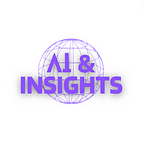The Role of DataOps in Data Governance: How to leverage DataOps to ensure compliance with regulations and protect sensitive data.
Data governance is an important aspect of managing data in any organization. It involves the management of data assets, the definition of data policies and standards, and the implementation of controls to ensure compliance with regulations and protect sensitive data. DataOps can play a critical role in data governance by enabling organizations to automate many of the manual tasks involved in managing data and ensuring compliance with regulations. Here are some ways in which DataOps can help with data governance:
- Automate data classification: Data classification is an important component of data governance, as it helps to identify sensitive data and ensure that it is protected appropriately. DataOps can help to automate the data classification process, by using machine learning algorithms to classify data based on its content, metadata, and usage patterns.
- Implement data lineage tracking: Data lineage tracking is important for data governance, as it helps to ensure data accuracy and traceability. DataOps can help to automate data lineage tracking, by capturing metadata at each stage of the data lifecycle and creating a complete record of data flows.
- Implement data quality checks: Data quality checks are essential for data governance, as they help to ensure data accuracy, completeness, consistency, and integrity. DataOps can help to automate data quality checks, by using automated testing tools and techniques to verify data quality at each stage of the data lifecycle.
- Implement data access controls: Data access controls are critical for data governance, as they help to ensure that sensitive data is protected from unauthorized access. DataOps can help to automate data access controls, by using automated role-based access controls and other techniques to ensure that data is accessed only by authorized users.
- Implement data privacy controls: Data privacy controls are becoming increasingly important, as regulations such as GDPR and CCPA require organizations to protect personal data. DataOps can help to automate data privacy controls, by using techniques such as data masking, tokenization, and encryption to protect sensitive data.
- Monitor data compliance: Finally, DataOps can help to monitor data compliance with regulations and data policies. By implementing automated monitoring tools and techniques, organizations can ensure that data is being managed in accordance with regulations and policies, and identify and address any compliance issues.
DataOps can play a critical role in data governance, by enabling organizations to automate many of the manual tasks involved in managing data and ensuring compliance with regulations. By automating data classification, implementing data lineage tracking, implementing data quality checks, implementing data access controls, implementing data privacy controls, and monitoring data compliance, organizations can ensure that their data is being managed in a compliant and secure manner, and protect sensitive data from unauthorized access.
